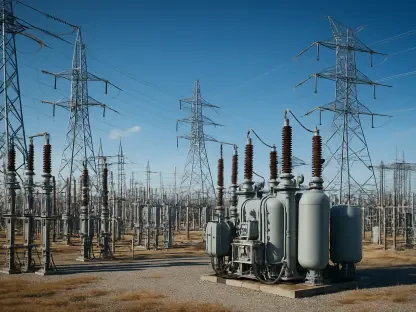As the aviation industry grapples with the urgent need to reduce its carbon footprint, a groundbreaking partnership in Texas is sparking hope for a greener future, with significant implications for sustainability. In the small town of Bon Wier, USA BioEnergy has joined forces with industry giants Johnson Matthey (JM) and Honeywell International, Inc. to develop a cutting-edge sustainable aviation fuel (SAF) facility. This ambitious project aims to produce synthetic paraffinic kerosene (SPK), a vital component of SAF, using innovative technologies and renewable resources. With the International Air Transport Association (IATA) setting a bold target of net-zero emissions by 2050, initiatives like this one could position Texas as a pivotal player in decarbonizing aviation. The Bon Wier biorefinery not only addresses environmental challenges but also promises to bolster energy security and economic growth in the region, raising the question of whether Texas can become a blueprint for sustainable fuel production nationwide.
Pioneering Technology in Bon Wier
The Bon Wier facility represents a significant leap forward in SAF production through the integration of advanced technologies from JM and Honeywell. At the heart of the project are JM and bp’s FT CANS technology and Honeywell UOP’s FT Unicracking process, both leveraging the Fischer-Tropsch pathway to create SPK that meets strict aviation standards when blended with conventional jet fuel. Additionally, Honeywell’s Experion® PKS Distributed Control System (DCS) and safety systems ensure the plant operates with high efficiency and reliability. This technological synergy is designed to process one million tons of responsibly sourced forest thinnings annually, converting this biomass into 65 million gallons of transportation fuels, including SAF. Such innovation tackles feedstock availability issues while promoting renewable resource use, aligning with global sustainability goals and setting a high standard for future biorefineries in the industry.
Beyond the technological advancements, the Bon Wier project underscores a commitment to scalability and impact. Once operational, the facility is poised to make a substantial dent in aviation emissions by producing vast quantities of SAF. A 20-year offtake agreement with Southwest Airlines for up to 680 million gallons of SPK highlights the project’s potential, as this could translate into approximately 2.59 billion gallons of SAF when blended with fossil jet fuel. This agreement not only secures a market for the fuel but also demonstrates confidence in the reliability of the technologies deployed. The collaboration between JM and Honeywell extends to other initiatives, such as a similar SAF plant in Minnesota, signaling a growing industry consensus on the effectiveness of their solutions. For Texas, this positions the state as a hub for cutting-edge fuel production, potentially attracting further investment and innovation in the sector.
Environmental and Economic Implications
A defining feature of the Bon Wier biorefinery is its focus on environmental responsibility through sustainable practices. By utilizing forest thinnings as feedstock, the project reduces reliance on traditional fossil fuels while incorporating carbon capture and sequestration technologies to minimize the carbon footprint of production. This approach reflects a broader industry trend of exploring alternative feedstocks to scale SAF output and meet stringent environmental targets. Statements from USA BioEnergy executives emphasize the creation of a fully integrated solution in the advanced fuels sector, positioning the company as a frontrunner in sustainable innovation. Meanwhile, representatives from JM and Honeywell highlight how such initiatives support decarbonization, enhance domestic energy security, and create jobs, illustrating a multifaceted impact that extends beyond environmental benefits to tangible economic gains for local communities.
The broader implications of the Bon Wier project reveal a unified push toward a low-carbon aviation future. This initiative mirrors industry-wide efforts to overcome production challenges through innovation in technology and feedstock options. The collaboration among stakeholders showcases a shared understanding that sustainable fuels are critical to achieving global environmental goals. While individual contributions—ranging from technological expertise to long-term supply agreements—stand out, the overarching focus remains on balancing sustainability with economic viability. For Texas, the success of this facility could serve as a catalyst for further developments in the SAF space, potentially transforming the state into a leader in renewable energy solutions. The ripple effects of such projects could inspire similar ventures across the country, driving progress toward a more sustainable aviation industry.
Building a Sustainable Legacy
Reflecting on the Bon Wier project, it’s evident that the partnership among USA BioEnergy, Johnson Matthey, and Honeywell marks a turning point for sustainable aviation fuel production in Texas. Their collaborative efforts harness advanced technologies and renewable feedstocks to deliver significant quantities of SAF, contributing to emission reduction targets while reinforcing domestic fuel security. This endeavor, alongside parallel projects in other states, highlights a growing consensus on the value of technology-driven solutions in addressing aviation’s environmental impact. Looking ahead, the challenge lies in scaling such initiatives through increased investment, supportive policies, and broader industry adoption. By continuing to innovate and collaborate, stakeholders can ensure that the groundwork laid in Bon Wier becomes a foundation for a nationwide transition to greener aviation fuels, setting a precedent for sustainable progress.









